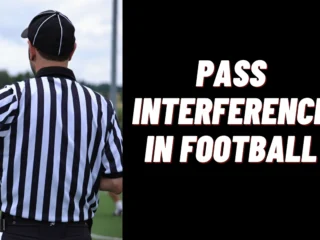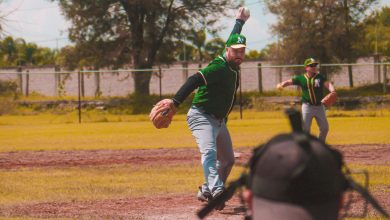
Define the concept of pass interference in football
Pass interference can drastically alter the result of any football game. It’s a regular penalty, which is usually used in high school, college and professional football games. What makes pass interference so crucial?
Pass interference refers to when a defensive team member prevents an offensive player from catching the ball. The ruling states that a defensive player is not allowed to touch an offensive player while the ball is still in the air. Pass interference will be assessed if the defensive player comes into contact with an offensive player.
This article will go over everything you need to know about pass interference.
Pass interferences that are defensive could drastically alter the flow of any football game. This rule was established when forward passes were allowed.
The rule of pass interference was enacted to give the player trying to catch the football the right to catch it without a defender interfering.
Defensive Interference with Pass
Referees can throw flags to stop pass interference for a variety of reasons.
Pass interference occurs when two people are trying to catch the ball but one is too insecure. The official will typically decide to throw the flag of penalty.
Also check: AB de Villiers | Abhinav Bindra
The defensive player should give the offensive player the chance to catch the football.
However the defensive player is entitled to the same rights in relation to the football as offensive players. If the defensive player is gazing back at the football and in a position where they could catch it, they might attempt to take it.
The penalty flag is typically used when a defensive player makes no effort to position themselves to play football up in the air. They have too much contact with the wide receiver, and result in the flag being thrown.
Penalties for Pass Interference
If the official from football decides that the player on the defense has been too close to the wide receiver, they will throw the flag and not try to catch the ball.
Based on the level played, the penalty flag will vary based on the level of play. These are the penalties each football league will have.
- High School: 15 Yard Penalty From The Line Of Scrimmage
- College 15 Yard Penalty on the Line Of Scrimmage and an Automatic First Down
- Professional Automatic First Down The Ball is positioned where The Penalty Was Submitted
As you can observe, pass interference is punishable at the professional level more severely than it is at college and high school levels.
Pass interference at the high school level doesn’t necessarily mean that it’s a first down. In accordance with NFHS rules, if the offense is running 3rd and 20, and pass interference occurs in the following play the team will replay the down, which is 3rd and 5.
In college, however it’s safer. The referee will send a penalty flag for 15 yards, and the team will be automatically granted a first down.
The rules for pass interference at professional levels like the NFL, are the most strict. They mandate that when the flag of penalty is raised for pass interference, the ball is immediately put in the spot where the pass interference occurred. The offense also gets the benefit of an automatic first down.
This decision has many implications for teams trying to throw the ball off the field in games that ended late.
The call for pass interference is constantly argued by fans, players as well as coaches.
Offensive Pass Interference
While pass interference is a term used in defense however, it is also called offensive pass interference.
This link gives a great visual illustration of offensive pass interference.
If the ball is suspended in the air, if the offensive player has too much contact with the defense player trying to stop the ball, they might be charged with offensive pass interference.
Occupant pass interference results in a 15 yard penalty.
If the penalty occurred on an offense that was second or 10, it would be 25 or 2nd. This only applies if the penalty is recognized by the defense (high school or college).
This is a rare penalty, but it can happen. Pass interference calls are typically dependent on the referee’s discretion. Although some referees may not throw a flag at all, others may. It’s all about what the referee considers to be their interpretation of pass interference.
Also check: Anjali Bhagwat | Anju Bobby George
Apart from this, if you are interested to know more about Fantasy Games vs Real Money Games then visit our Sports category




